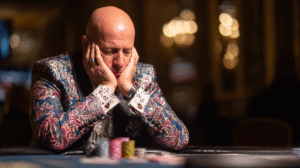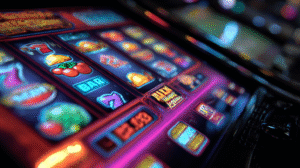
Countering Cheats: Tools of Protection or Instruments of Cheating? Bad or Just Too Good?
In their never-ending pursuit to protect profits, casinos employ a wide range of countermeasures aimed at preventing cheating and curbing advantage play. While many of these practices are designed to maintain the integrity of games, an increasing number of scholars, players, and even regulators are beginning to question whether some of these techniques amount to institutionalized cheating—especially given the power imbalance between casinos and patrons. The countermeasures range from surveillance and procedural controls to subtle rule manipulations and player tracking. Each carries distinct implications for fairness, efficiency, and legality.
One of the most widespread casino countermeasures is the use of sophisticated surveillance systems. Often dubbed the “eye in the sky,” these systems employ high-definition cameras capable of zooming in on individual chips, cards, and facial expressions. Surveillance rooms are staffed by trained personnel who watch for behavior that may indicate cheating or advantage play. On its surface, surveillance is a reasonable and necessary form of protection. However, when casinos use this surveillance not just to identify cheating but to single out successful legal players—such as card counters or video poker experts—they blur the line between protection and predation. These players are often banned or “backed off” without explanation, even though they have committed no crime. The lack of transparency in such enforcement, combined with the absence of due process for accused players, raises questions about fairness and abuse of power.
Casinos also use procedural countermeasures at the table level. One of the most controversial is “shuffling up.” This involves interrupting a shoe of cards mid-game to reshuffle the deck, effectively wiping out any edge that a card counter may have gained. While casinos are well within their rights to shuffle at any time, the tactic is used strategically to neutralize players who are following the rules but playing skillfully. This practice doesn’t alter the game in the way that marked cards or weighted dice do, but it does undermine the notion of a consistent, rule-based game. Other procedural changes include increasing the number of decks used, changing payout odds (e.g., reducing blackjack payouts from 3:2 to 6:5), and limiting options like doubling down or splitting. These changes often go unnoticed by casual players but significantly increase the house edge, effectively taxing the uninformed.
Another growing trend in casino countermeasures is the use of facial recognition and biometric data to identify and track players. While touted as a security feature, this technology is increasingly used to flag individuals who have beaten the house in the past or who exhibit patterns of advantage play. Players can find themselves followed by security, denied service, or ejected from the premises based on data that they have no access to and no ability to challenge. This level of surveillance, combined with opaque decision-making, represents a stark imbalance of power. It evokes comparisons to government-level monitoring—only here, it’s a private corporation controlling access to legal commerce.
Casinos have also developed databases to share information about suspected cheaters and advantage players. The most infamous of these is the Griffin Book (now largely defunct), but similar systems still exist today. These databases compile detailed information on players—including photographs, aliases, playing style, and suspected strategies. While the intent is to prevent known cheaters from exploiting multiple properties, the inclusion of legal advantage players creates a blacklist-style environment where individuals can be excluded from casinos without ever being charged with or convicted of wrongdoing. Lawsuits have challenged the legality of these lists, particularly when they involve defamation or invasion of privacy, but they continue to be used quietly and pervasively.
Beyond individual players, some countermeasures target the pace and profitability of games more broadly. Casinos may deliberately slow down games like blackjack, baccarat, and craps to reduce the number of hands played per hour. This may seem counterintuitive since more hands mean more profit in the long run, but slow games minimize exposure to high-stakes advantage play. However, the collateral damage is significant: slower games reduce player enjoyment, limit overall casino throughput, and, importantly, decrease tax revenue collected by state and local governments, which often rely on a percentage of gross gaming revenue. This suggests that such countermeasures, while protective in theory, may actually be economically counterproductive in practice.
Many countermeasures also involve dealer behavior, which casinos control through training and procedure. Dealers may be instructed to use verbal cues to distract players, obscure key information (such as whether a player has the option to double down), or subtly pressure them into poor decisions. These tactics don’t meet the legal threshold for fraud or coercion, but they contribute to a gaming environment that feels more like entrapment than entertainment. In some cases, dealers are instructed to feign ignorance when a player points out a rule discrepancy—delaying corrections or denying errors unless formally challenged. These practices reflect an attitude of protecting the house at all costs, even at the expense of honest play.
Technology also plays a key role in casino countermeasures. Automatic shufflers, card-reading shoes, RFID-enabled chips, and electronic player tracking systems give casinos unprecedented control over games and player behavior. These tools can detect statistical anomalies, identify betting patterns, and enforce betting limits with precision. Yet, they can also be used to subtly manipulate outcomes. For instance, electronic baccarat shoes can be programmed to limit winning streaks by shuffling more frequently after a series of player wins. While such tactics may not rise to the level of outright cheating, they clearly interfere with the game’s natural variability. The lack of oversight or transparency in how these technologies are programmed or deployed makes them particularly suspect.
Marketing and promotions—often seen as innocuous parts of casino operations—can also serve as subtle countermeasures. Free play offers, match play coupons, and tiered loyalty programs are designed not just to encourage play but to incentivize behavior that benefits the house. For example, high-level players might be enticed with cashback or comps, but only if they play games or machines with higher house edges. This creates a feedback loop where the player is essentially rewarded for losing. Similarly, promotions that appear generous often contain fine print that significantly reduces their value. If a player attempts to capitalize on a promotion too effectively—such as redeeming multiple coupons across properties or combining offers—they may be accused of “promotion abuse” and have their rewards confiscated.
Perhaps the most troubling countermeasure is the discretionary “no-cause” ejection of players. Casinos, especially in jurisdictions where gambling is considered a privilege rather than a right, often reserve the ability to remove any player at any time without giving a reason. This allows them to expel legal, skilled players without having to prove any misconduct. It also enables them to sidestep regulations that require fairness in gaming. In some cases, players who win too much are labeled “undesirable” and banned simply because they’ve beaten the odds. In practice, this renders the notion of a fair game largely illusory. If a player can be removed for winning too effectively, then the game isn’t truly fair—it’s conditional, based on the outcome.
While casinos are entitled to protect themselves from fraud, theft, and cheating, many of the countermeasures they employ cross ethical lines and, in some cases, may be functionally indistinguishable from cheating. These practices often exploit the asymmetry of information, the lack of regulatory transparency, and the limited recourse available to players. Whether through surveillance, procedural manipulation, technological control, or opaque enforcement, these countermeasures contribute to a casino environment that is increasingly skewed in favor of the house—not just mathematically, but structurally. Regulators, lawmakers, and courts must scrutinize these practices more carefully to ensure that the balance of power in gambling—already weighted heavily toward casinos—does not become outright oppressive. The fundamental question isn’t whether casinos are cheating in the traditional sense, but whether their “defensive” strategies have become so aggressive that they subvert the very integrity they purport to defend.
Where to Next:

Play Tight, But Aggressive: Mastering the Art of Poker Strategy
Play Tight, But Aggressive: Mastering the Art of Poker Strategy In the world of Poker, understanding the concept of playing tight, but aggressive is crucial to becoming a successful player. This strategy is often used by experienced professionals to maximize their potential winnings while minimizing their risk. So, what does it mean to “play tight,

Everything You Need to Know About the Grand Prize Wheel Promotion at Grosvenor Casino
Everything You Need to Know About the Grand Prize Wheel Promotion at Grosvenor Casino The Grand Prize Wheel at Grosvenor Casino Online is an exciting and dynamic promotion designed to offer players the opportunity to win daily prizes with a simple spin of a virtual wheel. Running from Monday, 15th September 2025, until further notice, this

The Highs, Lows, and Future of Poker: From Millionaires to Modern Streams | E-Vegas Explores
The Highs, Lows, and Future of Poker: From Millionaires to Modern Streams | E-Vegas Explores Poker has long captured imaginations worldwide — a game of skill, chance, and nerve that can create millionaires overnight and teach harsh lessons in humility just as quickly. The lives of poker millionaires are a study in contrasts: yachts moored

Online Roulette | Play Roulette Games | E-Vegas.com™
Online Roulette | Play Roulette Games | Casino Promotions and Bonuses for Online Roulette | E-Vegas.com™ Online roulette is not only about the excitement of the spinning wheel and the potential for big wins, but also about the numerous promotions and bonuses that online casinos offer to enhance the gaming experience. Whether you’re a beginner

The Truth About RTP: What Most Players Don’t Know and How It Impacts Your Payouts
The Truth About RTP: What Most Players Don’t Know and How It Impacts Your Payouts When you sit down to play your favorite slot game at an online casino, you probably aren’t thinking much about the RTP—the Return to Player percentage. You might be focused on the thrill of spinning the reels, hoping for that

How to Manage Risk Spreads Strategically On The Down Low Without Triggering Unwanted Heat or Surveillance
How to Manage Risk Spreads Strategically On The Down Low Without Triggering Unwanted Heat or Surveillance Managing risk spreads in sports betting—or placing strategic wagers across multiple sportsbooks or markets to reduce volatility and increase edge—is a core technique of professional betting. However, when executed carelessly or too aggressively, it can quickly attract the attention

Countering Cheats: Tools of Protection or Instruments of Cheating? Bad or Just Too Good?
Countering Cheats: Tools of Protection or Instruments of Cheating? Bad or Just Too Good? In their never-ending pursuit to protect profits, casinos employ a wide range of countermeasures aimed at preventing cheating and curbing advantage play. While many of these practices are designed to maintain the integrity of games, an increasing number of scholars, players,
The Mechanics of Shuffle Tracking & Ace Sequencing: How a Sharp Eye Can Create Thousands in Edge Play
The Mechanics of Shuffle Tracking & Ace Sequencing: How a Sharp Eye Can Create Thousands in Edge Play Card counting is often portrayed as the ultimate skill in blackjack advantage play, a route to winning big in the casino. For many, learning to count cards is a journey, one that involves mastering basic strategy, memorizing
FAQ: Casino Countermeasures and the Ethics of Game Protection
1. Are casinos legally allowed to use countermeasures against players?
Yes. Casinos are legally permitted to use countermeasures to protect against cheating and advantage play. However, the legality of specific tactics depends on how they’re applied and whether they violate state gaming laws or players’ rights.
2. What is the difference between cheating and advantage play?
Cheating involves altering the outcome of a game through illegal means (e.g., marking cards, colluding with dealers). Advantage play, on the other hand, is legal and involves using skill or knowledge—such as card counting—to gain an edge.
3. Can countermeasures used by casinos be considered cheating?
In some cases, yes. The article argues that certain countermeasures mimic traditional cheating techniques in effect and should be scrutinized as such, especially when they exploit the power imbalance between casinos and players.
4. What are some examples of countermeasures that harm legal players?
Examples include mid-shoe shuffles to foil card counters, surveillance-based player targeting, refusal of service to consistent winners, and changes in rules or odds that are not clearly disclosed.
5. How do casinos justify using aggressive countermeasures?
Casinos claim these measures are necessary to preserve the integrity of games and protect against losses due to cheating or skilled advantage players.
6. Do players have any legal recourse if they feel cheated by a casino?
Rarely. Gaming commissions tend to side with casinos, and courts give wide deference to regulatory decisions. Most patron complaints are resolved administratively with little success for the player.
7. Are all countermeasures economically justified?
No. Some countermeasures, such as slowing down games or excessive surveillance, reduce game speed and profitability, which in turn can lower state tax revenue and harm the overall economy.
8. Is surveillance in casinos a fair tool?
Surveillance is fair when used to detect cheating. However, using it to identify and punish skilled but legal players raises ethical concerns, especially when there’s no transparency or due process.
9. Do casinos manipulate payout odds without notice?
Yes, in many cases. Casinos can adjust rules such as blackjack payout ratios or doubling options, often without adequately informing players, making it hard to comparison-shop or make informed decisions.
10. How are suspected players identified across multiple casinos?
Casinos often share player information via databases or informal networks. Players may be blacklisted or surveilled even if they’ve done nothing illegal.
11. Can casinos eject players without reason?
In most jurisdictions, yes. Casinos can refuse service to anyone, and legal players—especially advantage players—are often ejected without cause or explanation.
12. What is the impact of countermeasures on the gambling experience?
They often make games slower, more frustrating, and less transparent. This can reduce player trust, discourage repeat play, and ultimately harm the casino’s reputation and profitability.
13. Are regulators doing enough to oversee countermeasures?
Generally, no. Regulators often prioritize casino interests, granting them broad discretion and rarely intervening unless there is clear, intentional fraud or misconduct.
14. What is the article’s overall argument about casino countermeasures?
The article contends that many countermeasures go beyond fair protection and venture into ethically dubious territory—some even resembling cheating. It calls for more regulatory oversight, transparency, and balance between protecting casinos and respecting player rights.
